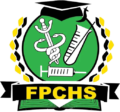Clinical Medicine
Program Overview
A Diploma in Clinical Medicine program provides training to individuals interested in pursuing a career as clinical officers, medical assistants, or physician assistants. This program focuses on developing clinical skills, medical knowledge, and competence necessary to provide primary healthcare services and support doctors in various medical settings.
Duration
The duration of a Diploma in Clinical Medicine program runs for three years.
Entry Requirements
Certificate Holders
To be admitted in the Diploma in Clinical Medical Sciences General Programme, the candidate must possess the following:
– Five subjects passed at credit level or better, four of which must be English Language, Mathematics, Biology and Science/Chemistry/Physics
– Certificate/diploma in a health-related program(s)
Curriculum
1. Pre-Clinical Phase: This phase covers foundational knowledge in basic medical sciences, similar to a Clinical Medicine general program. The curriculum may include courses such as:
a) Anatomy: Studying the structure of the human body through prosection, dissection, and anatomical models.
b) Physiology: Understanding the normal functioning of bodily systems and their regulation.
c) Biochemistry: Exploring the chemical basis of life processes and metabolic reactions in the body.
d) Pathology: Studying the causes, mechanisms, and effects of diseases.
e) Microbiology: Understanding various microorganisms, their role in causing infections, and methods of prevention and treatment.
2. Clinical Phase: The main focus of the program is on clinical practice and developing skills necessary for providing primary healthcare. The curriculum includes courses and rotations in various medical areas, such as:
a) Internal Medicine: Learning about common medical conditions and their management.
b) Surgery: Covering basic surgical skills, wound management, and assisting in surgical procedures.
c) Obstetrics and Gynecology: Understanding antenatal care, childbirth, and women’s reproductive health.
d) Pediatrics: Addressing the medical care of infants, children, and adolescents.
e) Emergency Medicine: Acquiring skills to manage acute medical emergencies.
f) Community Health: Focusing on health promotion, disease prevention, and community-based healthcare.
3. Clinical Skills Training: Throughout the program, students receive hands-on training in clinical skills, including history-taking, physical examination, diagnostic procedures, basic laboratory tests, and medical documentation.
4. Practice Placements: Students typically complete practice placements in healthcare facilities, such as hospitals, clinics, or health centers, to gain practical experience in providing primary healthcare services under the supervision of experienced healthcare practitioners.
5. Professional Competencies: The program includes training in professional ethics, communication skills, patient counseling, and healthcare management.
Career Opportunities
Graduates of a Diploma in Clinical Medicine program can work as clinical officers, medical assistants, or physician assistants in various healthcare settings. They can provide primary healthcare services, diagnose and treat common medical conditions, assist in surgeries, and support doctors in patient management.
Continuing Education
Diploma holders in Clinical Medicine may choose to further their education through additional courses or certification programs to specialize in specific areas of healthcare. Continuous professional development is essential to stay updated with medical advancements and practices.
